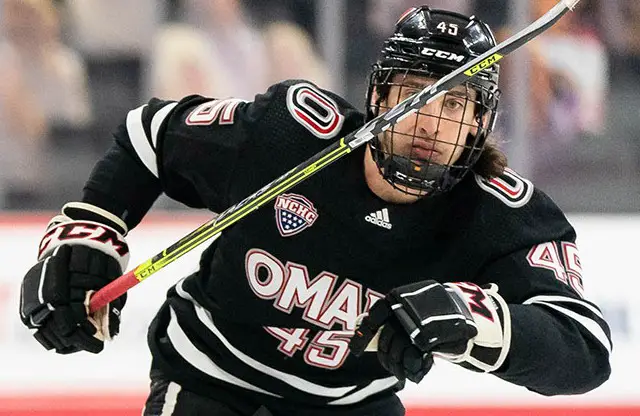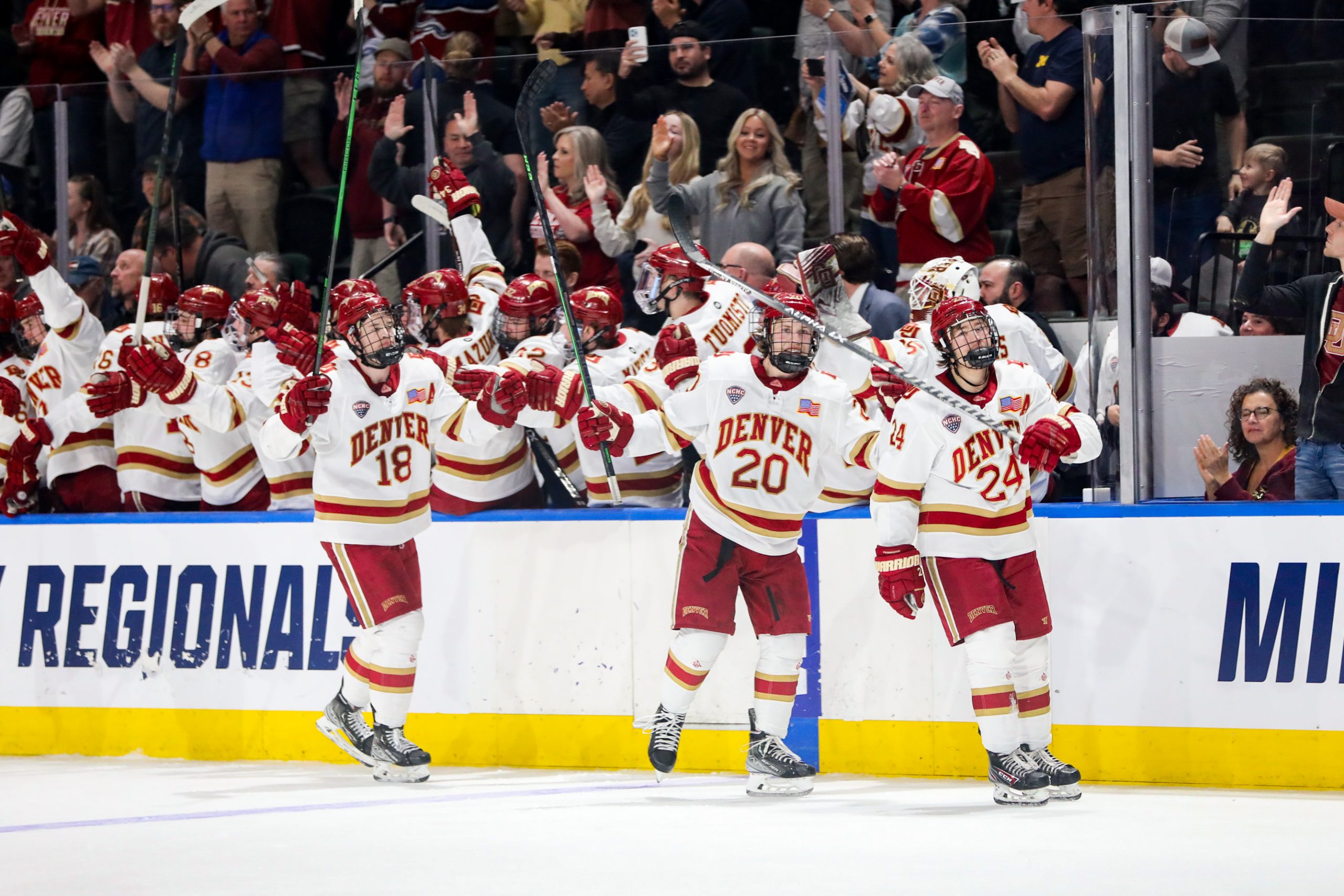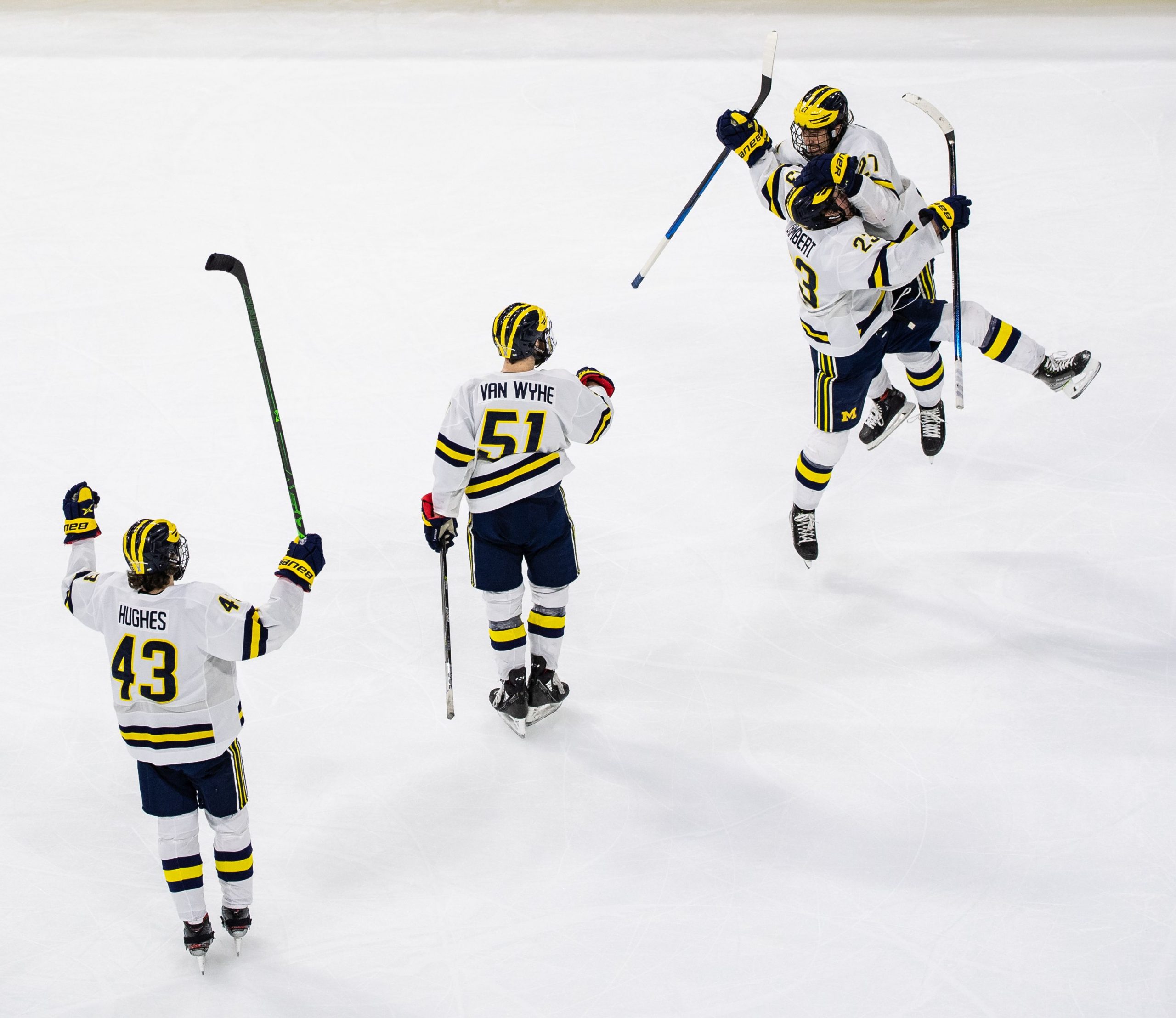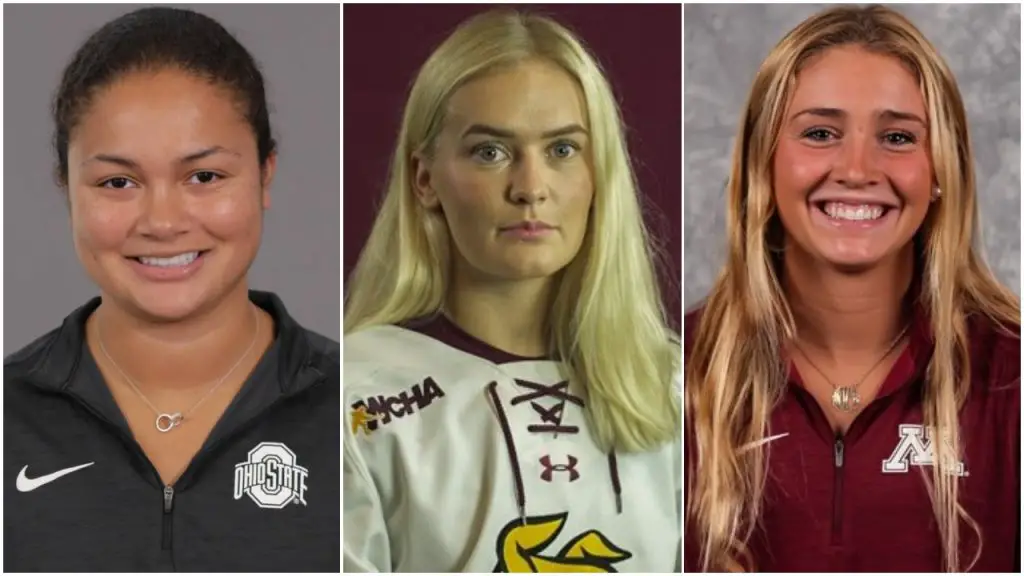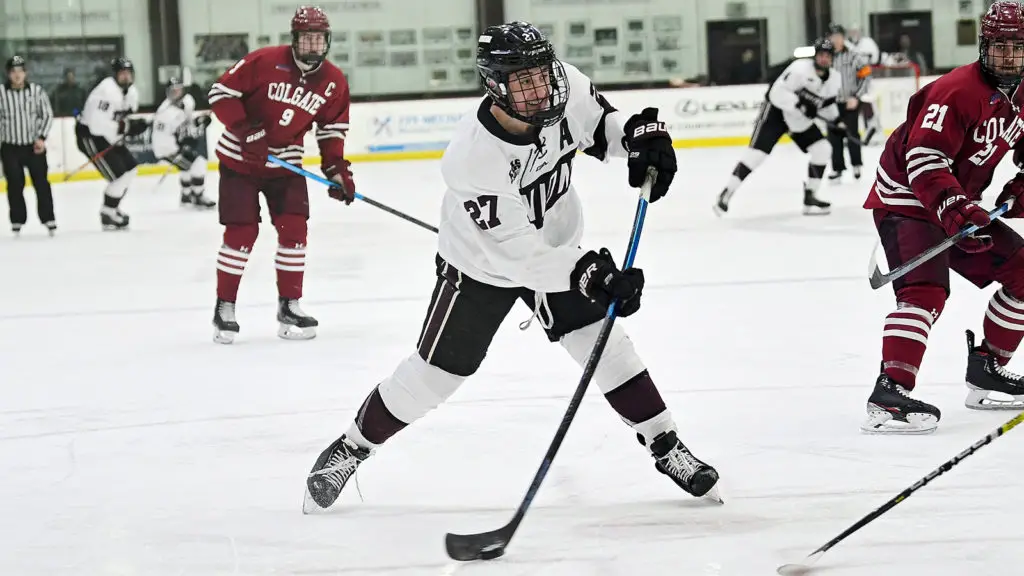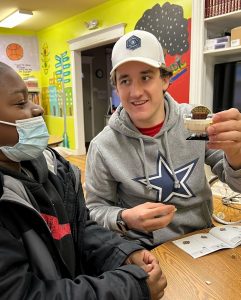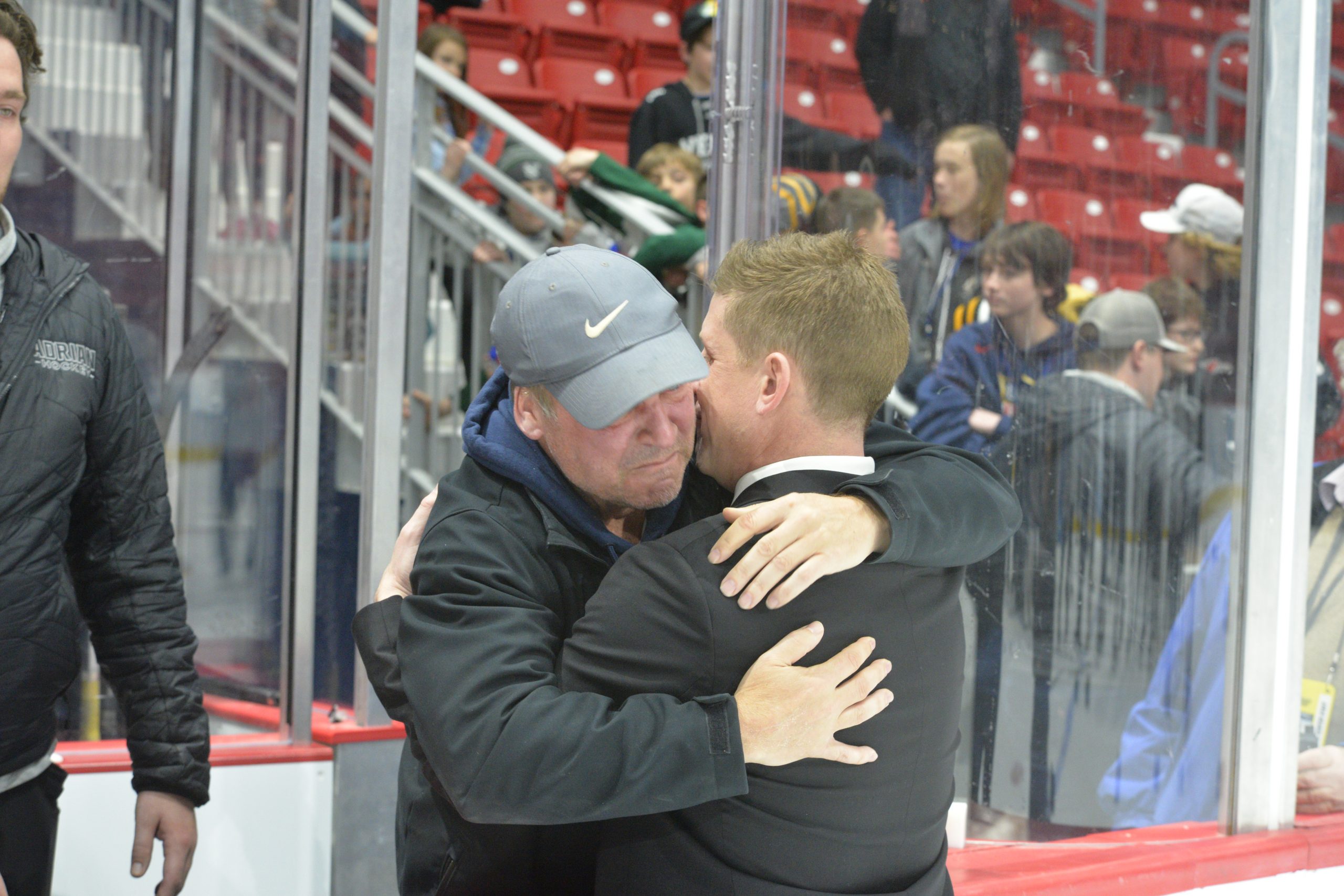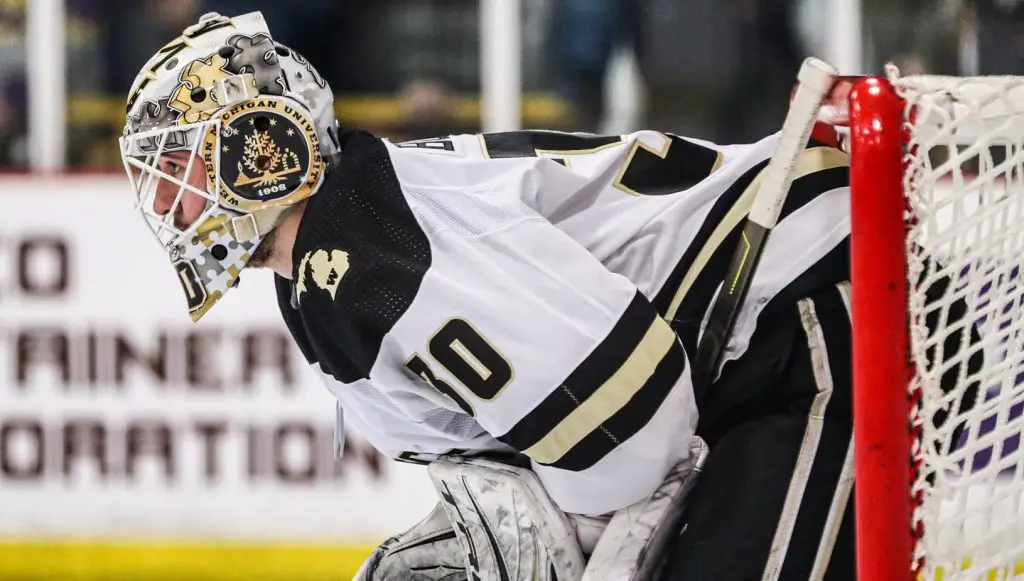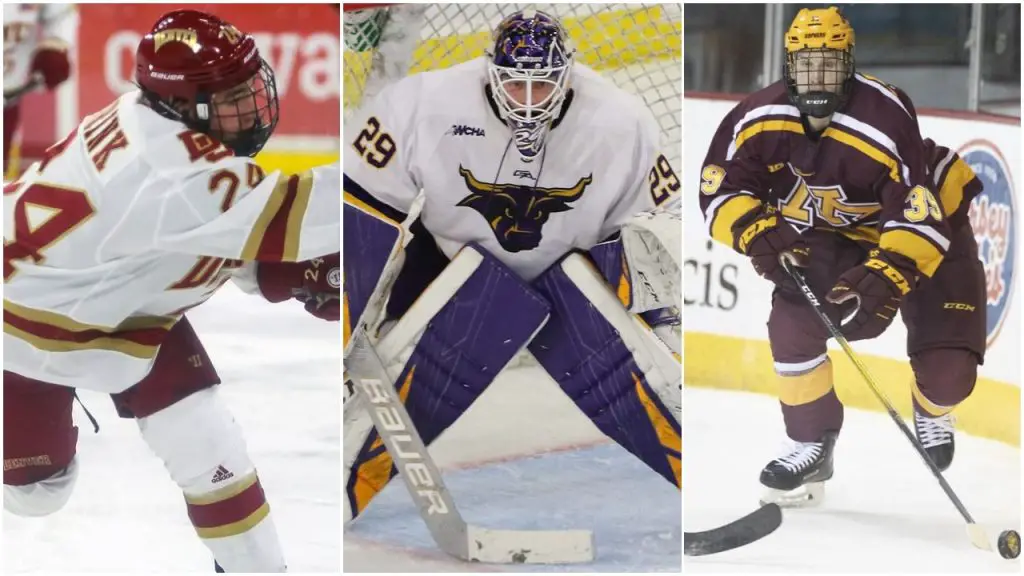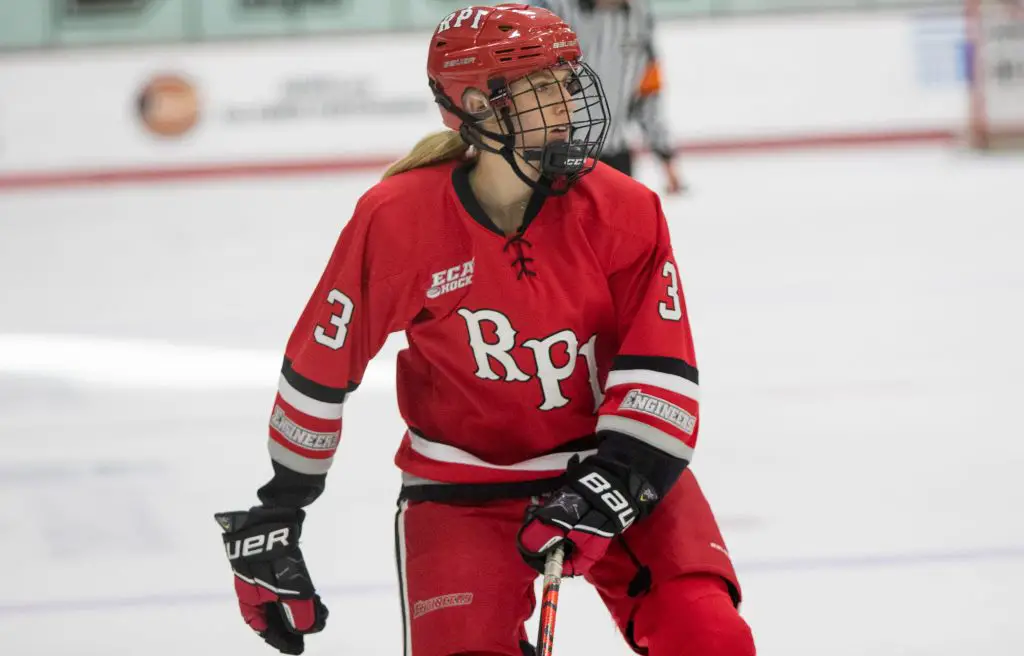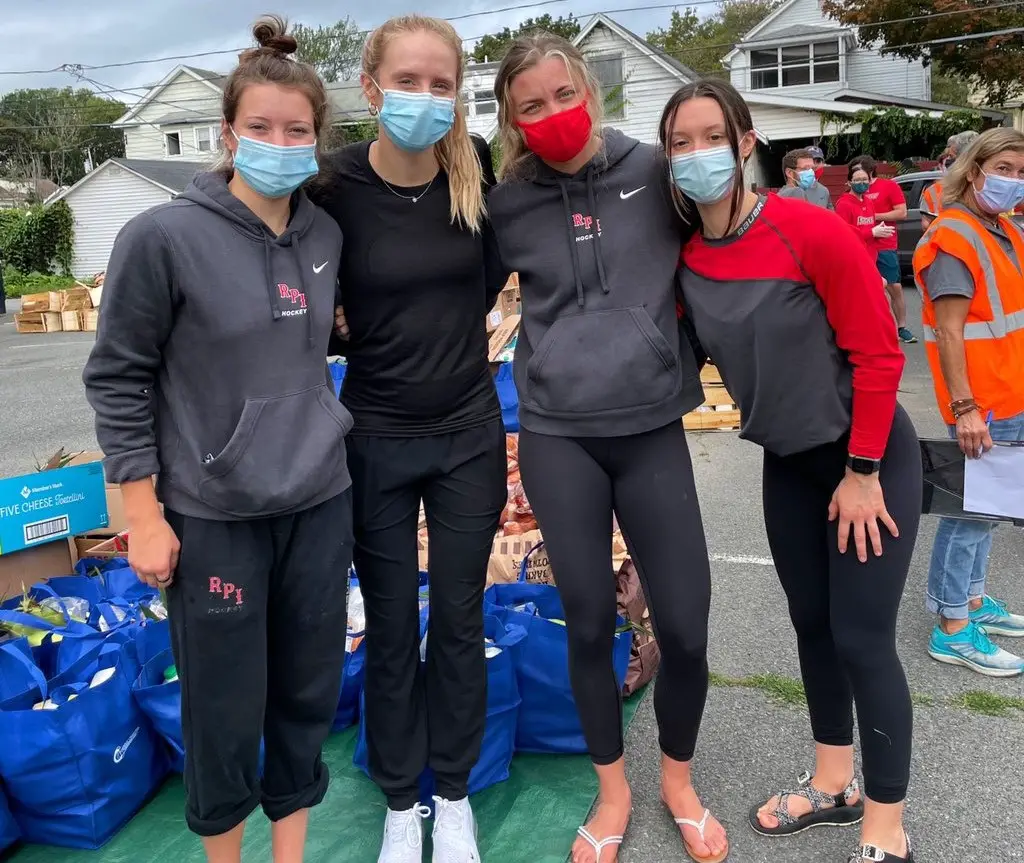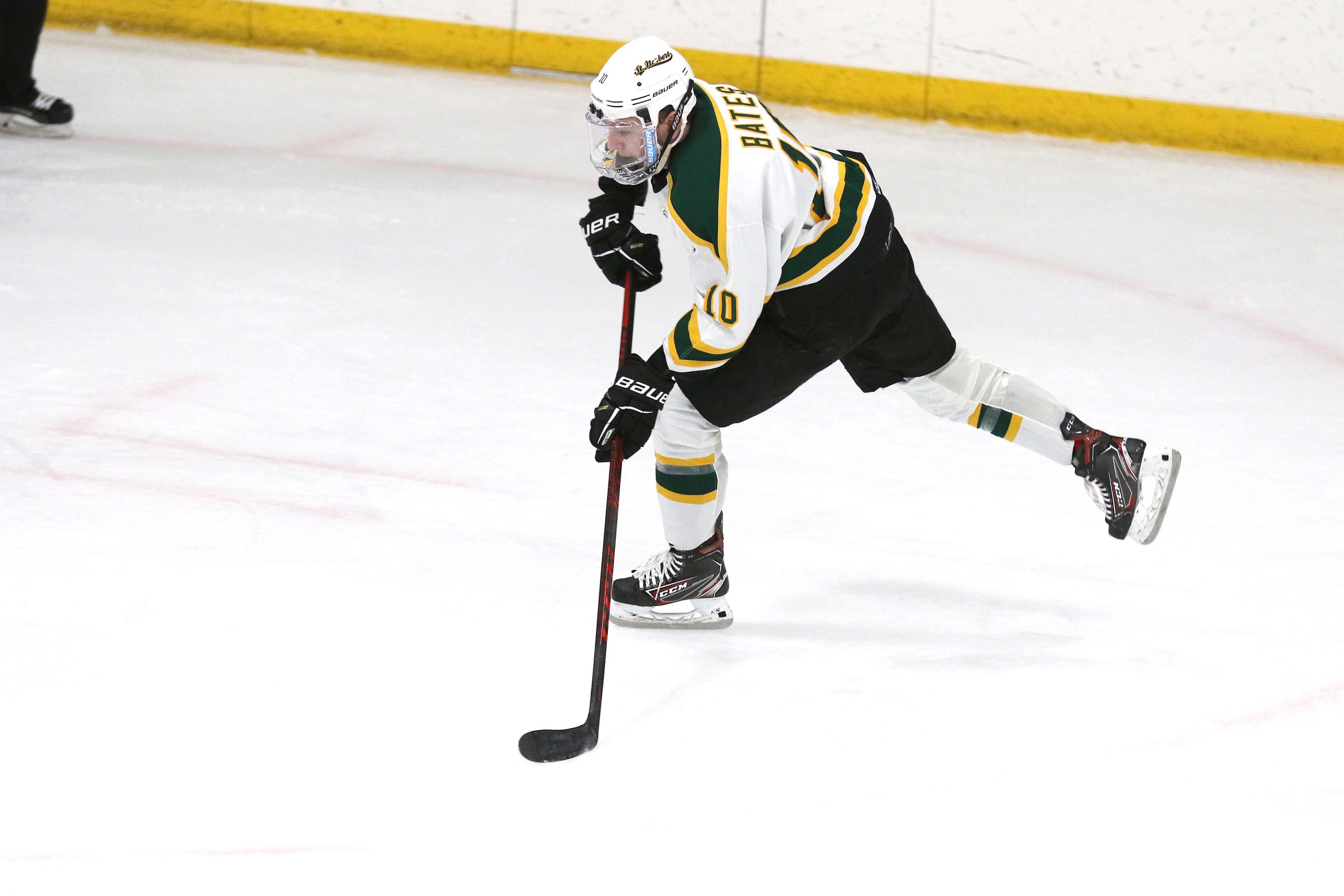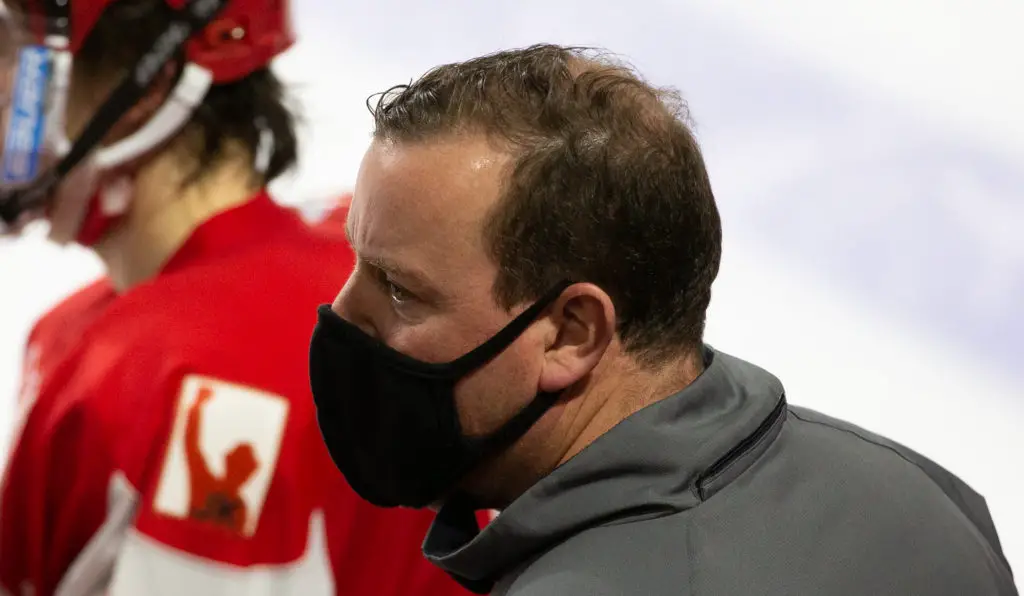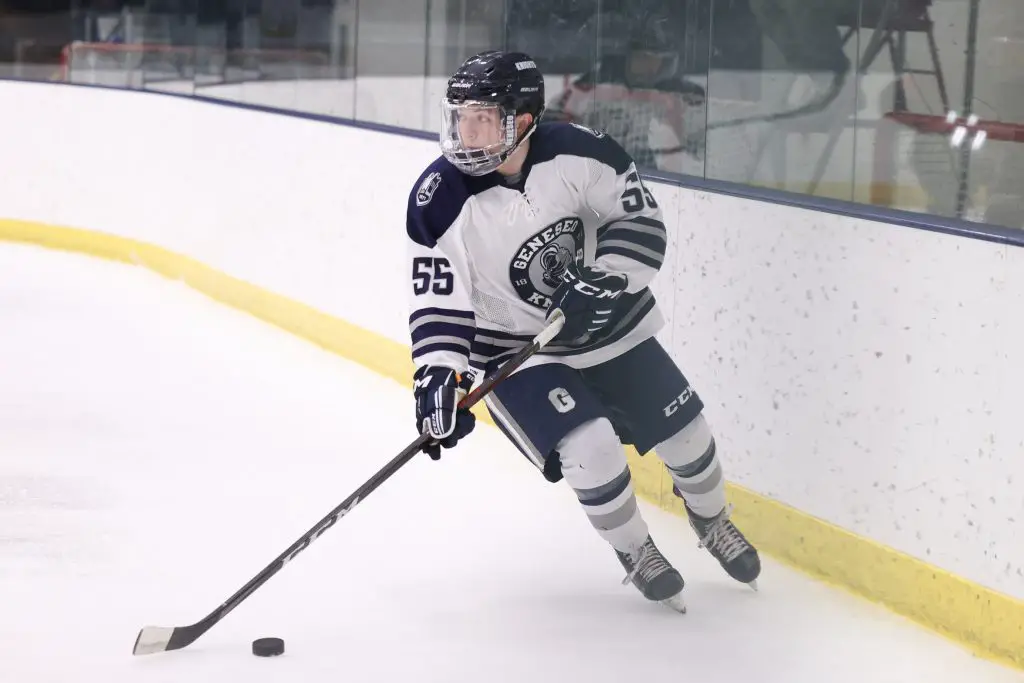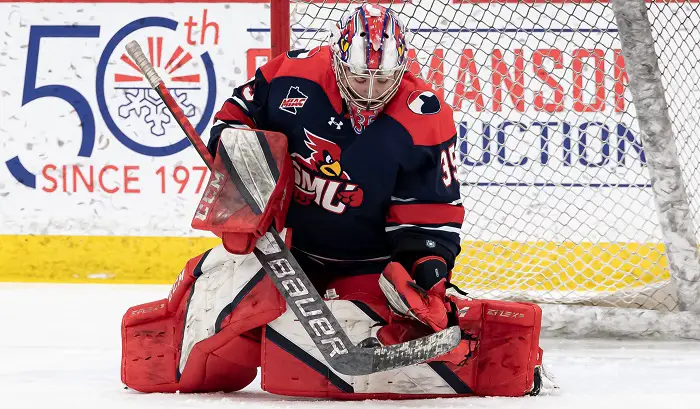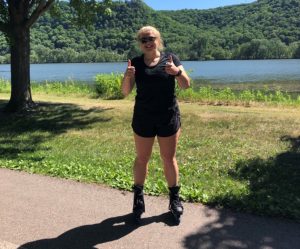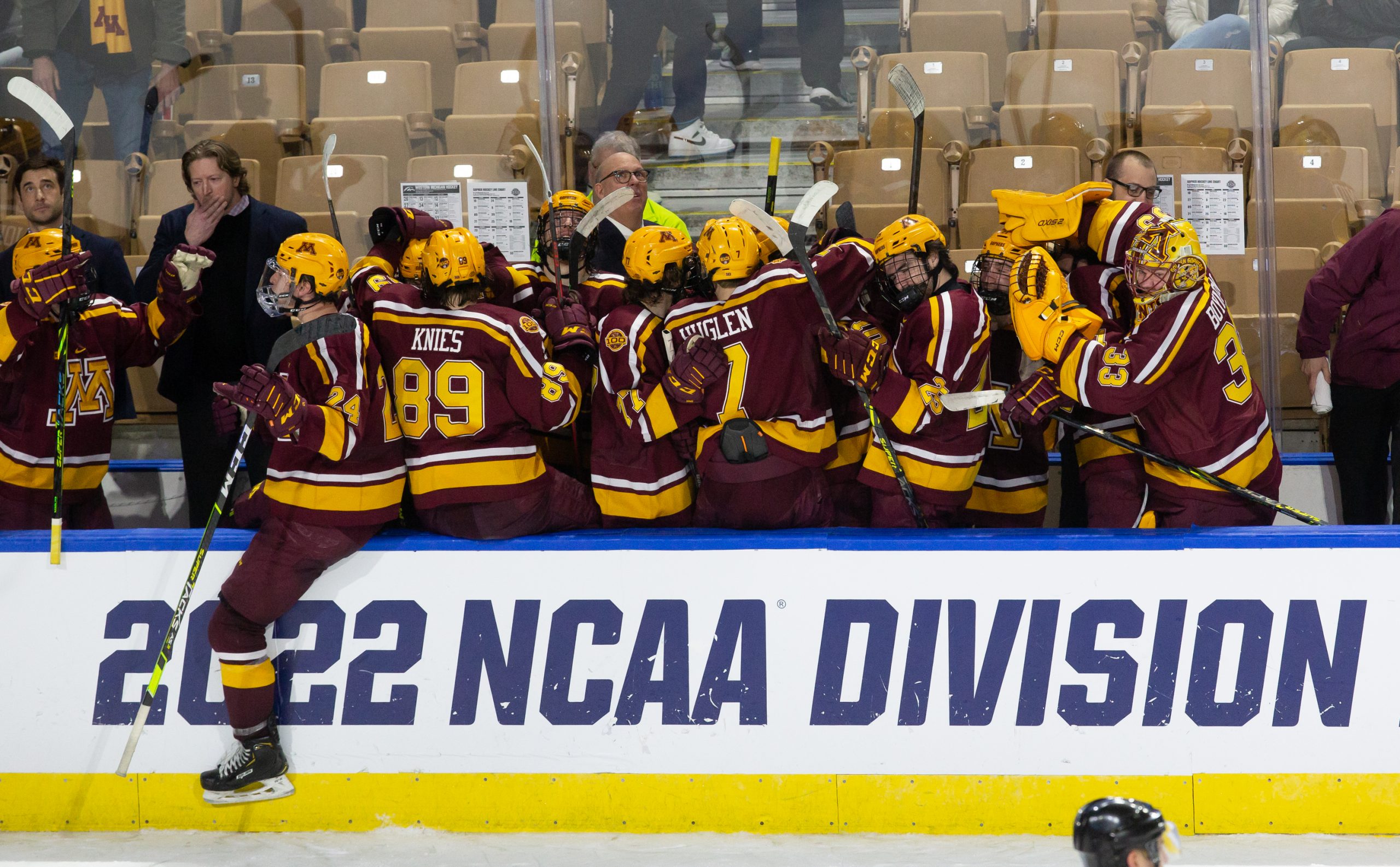
This is the fourth of four previews for teams playing in the 2022 Men’s Frozen Four this week in Boston. Click here for all of USCHO’s Frozen Four coverage.
Minnesota Golden Gophers
Season record: 26-12-0.
How they got to Boston: Won the Worcester Regional by defeating Massachusetts 4-3 and Western Michigan 3-0.
Top players: F Ben Meyers (17-24-41), F Matthew Knies (14-18-32), F Blake McLaughlin (13-20-33), D Jackson LaCombe (3-27-30).
Top goalie: Justen Close (14-4-0, 1.83 goals-against average, .929 save percentage).
Why they’ll win the national championship: Big Ten tournament championship game aside, the Gophers have been absolutely rolling in the second half of the season, going 11-1 since the start of February. Minnesota has a nice mix of experienced players and freshmen chipping in on the offensive side of the game and Close has exceeded mostly everyone’s expectations since taking over in goal after Jack LaFontaine’s departure from the team. The Gophers will win with their speed. Minnesota State has size and structure, but with players like Knies, Meyers, Brock Faber and Sammy Walker, Minnesota has the skill and speed to pierce through good defensive teams.
Why they won’t win the national championship: When coach Bob Motzko was asked on KFAN’s Beyond the Pod if the Gophers have faced a team that plays like Minnesota State in the Big Ten, he quickly replied “no,” and he’s correct. If the Gophers don’t win their sixth title it’s because they faced an uphill battle from the get-go in Boston. Minnesota doesn’t have any Frozen Four experience and its opponent, which also has the nation’s second-best offense and defense, is making its second consecutive trip. Then, if the Gophers do make it to the title game, either the No. 1 or No. 3 offense will be waiting.
— — —
When Motzko was hired at Minnesota, he said the Gophers needed to get older to compete in the current state of college hockey.
During the first news conference with the three other coaches heading to the Frozen Four, he admitted to lying. The average age of the Minnesota team that is set to take on rival Minnesota State on Thursday hasn’t really gone up, but something else has changed since he took over before the 2018-19 season.
“We haven’t gotten a lot older, but we have gotten more experience,” Motzko said. “We brought five freshmen in this year that all played two years in the USHL or two years in the U.S. program. So we’re more battle tested up front with the guys we’ve been bringing in versus the true freshmen that maybe traditionally at Minnesota were just out of high school.”
The strategy, which has the Gophers back in the Frozen Four for the first time since 2014, seems to have worked. Junior Meyers, who leads Minnesota in scoring, and Knies, who leads the freshmen group in that department, both played two full USHL seasons before moving onto college.
Motzko said young players like Knies and Chaz Lucius took off right out of the gate but Minnesota’s tremendous run of form in the second half of the season almost directly coincides with fellow freshmen Aaron Huglen, Rhett Pitlick and Tristan Broz each finding their game. That combined with a solid group of upperclassmen really has the Gophers clicking.
“Last weekend, of our seven goals, freshmen had four of them,” Motzko said. “And yet Ben Meyers, McLaughlin, Walker and then Close in net, playing so strong for us are the backbone.
“We needed that young group to materialize offensively for us because they’re awfully talented,” Motzko added. “The second half, they really hit their mark as a group. That’s the long and short of it — it took us a while to come together.”
In the Mavericks, the Gophers get another shot at the team that prevented them from getting to the Frozen Four last season when Minnesota State won the Loveland Regional final 4-0. Motzko said that loss was one of the things that this year’s team used as a learning experience.
“It’s been a couple-year process for us,” he said. “Developing that grit that’s needed to play and you feed off other teams in your league that have that and then we have to play a nonconference schedule against North Dakota, Duluth, Mankato and St. Cloud and we’ll get Bemidji eventually. That’s the only style these teams know, and it makes us better.”


